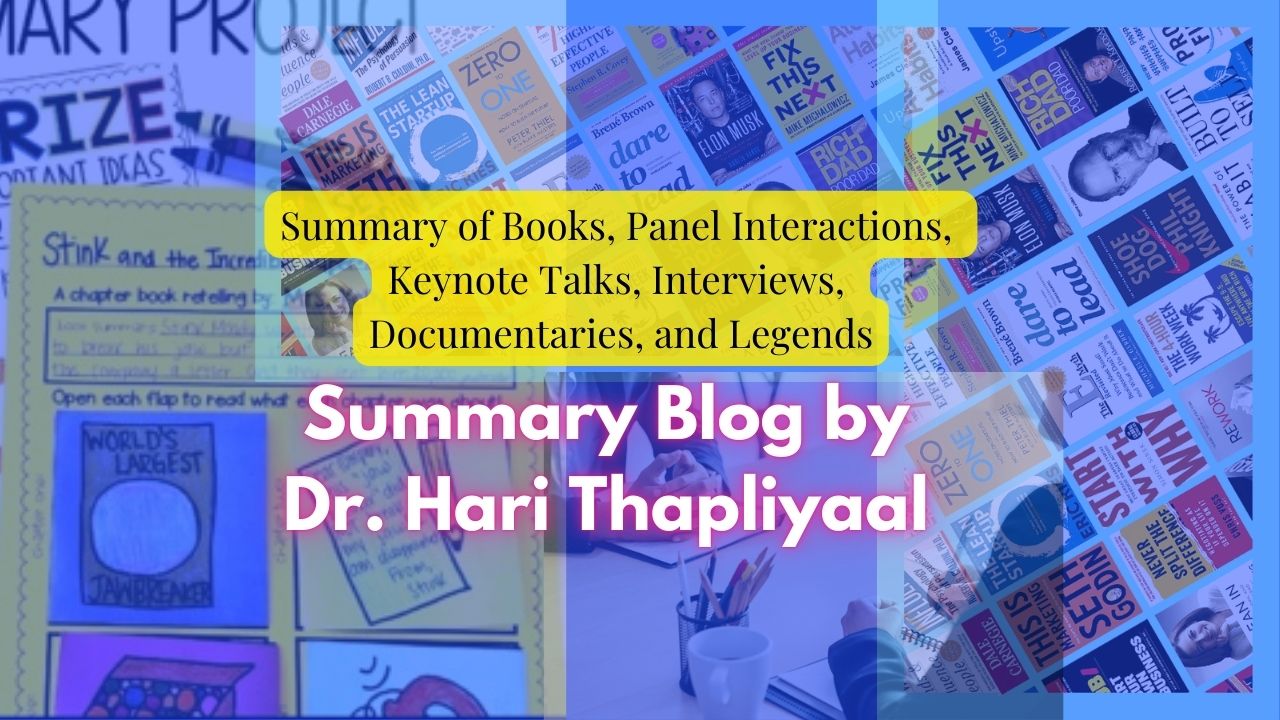Dr. Jaishankar Interview with HT on 12-Apr-25 #

Full Video: Jaishankar Shows Mirror To China, Presents Ugly Truth To Europe Amid Trump Tariff Chaos
Summary of the key points discussed in the interview: #
- India’s Opportunities in Times of Disruption:
- India has the potential to leapfrog existing limitations by embracing new pathways and technologies [00:39].
- India’s strengths in talent and data can be leveraged for growth in new sectors [01:19].
- The focus is on correcting the skewed nature of India’s openness to the global economy, with an emphasis on partnerships with the West [02:19].
- Tech Partnerships and Policy Architectures:
- It’s crucial to align regulatory systems with the real economy to ensure the effectiveness of tech partnerships [04:21].
- The focus should be on tangible projects and collaborative efforts that complement discussions and agreements [04:40].
- There’s a need for improvement and greater expectations in sunrise sectors [05:10].
- Trust and Trade Negotiations:
- Trust can be established even amidst geopolitical tensions [06:13].
- India is actively pursuing trade negotiations with the United States, the EU, and the UK, with a focus on high-tech content [03:16].
- There’s a sense of urgency to seize the current window of opportunity and expedite these negotiations [07:32].
- Balancing National Interests and Global Engagement:
- There’s no contradiction between prioritizing national interests and engaging with the global community [09:16].
- Countries should have the courage to prioritize their interests while seeking partnerships and relationships [11:39].
- Nuclear Energy and Policy:
- The government is considering amending the liability law to instill confidence in the international nuclear industry [12:47].
- There’s a discussion on opening up the nuclear sector to private sector participation [14:31].
- Quad and Support for Pacific Island States:
- The Quad is working on initiatives to support Pacific island states, including STEM fellowships and addressing developmental priorities [16:40].
- Areas of focus include connectivity, telecom, disaster response, and health issues [18:30].
- Europe’s Understanding of India:
- There are gaps in understanding due to Europe’s strategic comfort and differing challenges [20:23].
- The strategic reawakening of Europe has created opportunities for more serious conversations, especially on security and strategy [22:15].
- Managing Dependencies Amidst US-China Competition:
- India has experienced both sharp contestation and deep collaboration between the US and China [23:38].
- The world is heading towards a period of sharp competition, requiring countries to plan accordingly [24:24].
- India’s Digital Transformation:
- India has witnessed a significant embrace of digital technology at a societal level [28:20].
- Digitalization has impacted various aspects of life, including governance and service delivery [29:40].
- India’s experiences can serve as examples for other nations, particularly in the Global South [30:59].
- Transatlantic Partnership and China’s Role:
- In a competitive world, every player will seek to exploit opportunities [32:52].
- The thinking of countries about their interests has evolved, requiring a realistic approach [33:58].
- Strategic Interests and Tech Sovereignty:
- There’s an interplay between strategic interests and tech sovereignty [35:14].
- India needs to establish tech capabilities with aspects of sovereignty to be a significant player [35:33].
- Judicious alliances and understandings are crucial in the tech domain [36:34].
- Indian academia has a vital role to play in research and innovation [37:11].
Key Terms Discussed #
- Leapfrogging:
- To advance to a more developed stage or position, bypassing intermediate stages. In the context of the interview, it refers to India’s potential to skip over traditional development limitations by adopting new technologies and strategies.
- Regulatory Systems:
- A set of rules, laws, and processes established by governments or other authorities to control or govern particular activities or industries. The interview emphasizes the need for these systems to align with the real economy to support effective tech partnerships.
- Sunrise Sectors:
- New industries that are growing rapidly and are expected to become important in the future. Examples often include high-tech fields, renewable energy, and other innovative areas.
- Geopolitical Tensions:
- Strained relations or conflicts between countries due to political, territorial, or economic disagreements. These tensions can significantly impact international relations and global dynamics.
- Liability Law:
- The area of law that determines who is legally responsible for harm or damages caused to another person or their property. In the interview, it’s discussed in the context of nuclear energy and ensuring confidence in the industry.
- Quad:
- The Quadrilateral Security Dialogue, a strategic dialogue between the United States, India, Japan, and Australia. It’s discussed in the context of supporting Pacific Island states.
- STEM Fellowships:
- Programs that provide funding and support to individuals pursuing education or careers in Science, Technology, Engineering, and Mathematics (STEM) fields.
- Digital Transformation:
- The process of using digital technologies to fundamentally change how a business or organization operates and delivers value. It involves integrating digital technology into all areas of a business.
- Tech Sovereignty:
- The ability of a nation or region to control its own technological development and infrastructure, make its own technological choices, and protect its data and digital assets. I hope these definitions are helpful!


Comments: